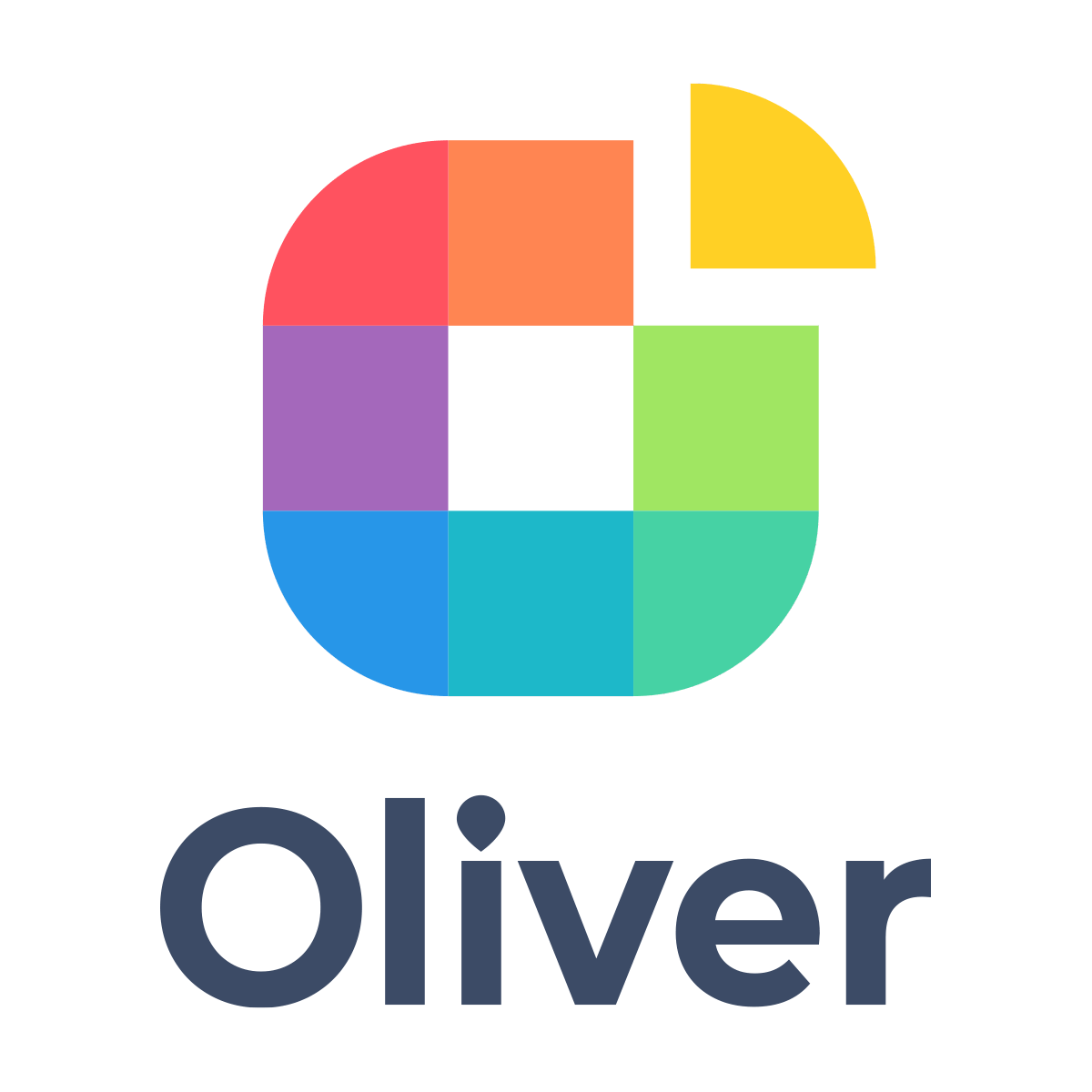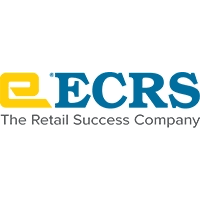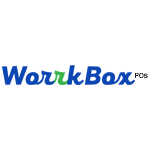Description

Oliver POS

Cartface
Comprehensive Overview: Oliver POS vs Cartface
Here's a comprehensive overview of Oliver POS, Cartface, and PIRO Retail:
Oliver POS
a) Primary Functions and Target Markets:
- Oliver POS is primarily a point-of-sale system designed to integrate seamlessly with WooCommerce, an e-commerce plugin for WordPress. This integration allows users to manage their in-store and online sales from a single platform.
- Its primary functions include inventory management, sales reporting, customer relationship management (CRM), and hardware compatibility (e.g., card readers, receipt printers).
- The target market for Oliver POS is small to medium-sized businesses, particularly those using WooCommerce and looking for an integrated commerce solution.
b) Market Share and User Base:
- Oliver POS is positioned relatively strongly within the WooCommerce ecosystem given its focus on integration. While it doesn't compete head-to-head on overall market share with giant POS providers like Square or Shopify, it holds a niche position.
- Its user base is primarily within the WooCommerce community, which has a large number of small to medium-sized enterprises.
c) Key Differentiating Factors:
- Seamless integration with WooCommerce, enabling users to manage both online and physical store sales from one platform.
- Offers a range of hardware options that are particularly user-friendly for WooCommerce stores.
- Provides a simple, intuitive design that matches the ease-of-use expected by many small businesses.
Cartface
a) Primary Functions and Target Markets:
- Cartface is a comprehensive e-commerce platform that offers a broad range of features including website creation, product management, payment processing, and marketing tools.
- It is designed for businesses that wish to create and manage online stores efficiently.
- The target market ranges from individual entrepreneurs and small businesses to larger enterprises looking for a white-label solution or customized platform.
b) Market Share and User Base:
- Cartface competes in a broader e-commerce platform marketplace with solutions like Shopify, BigCommerce, and WooCommerce.
- Its market share is more limited compared to popular names but is facilitated by its flexibility in customization and an array of services as part of its offering.
c) Key Differentiating Factors:
- Offers a high level of customization, which makes it attractive to businesses requiring a more personalized online store experience.
- Provides integrated marketing and analytics tools designed to enhance online business performance.
- Versatile payment processing options that cater to various business needs.
PIRO Retail
a) Primary Functions and Target Markets:
- PIRO Retail is a retail management solution that targets jewelers. It supports point-of-sale operations, inventory and supply chain management, CRM, accounting, and business intelligence.
- Its primary functions revolve around handling the specific needs of the jewelry retail business, such as custom orders, appraisals, and repairs.
b) Market Share and User Base:
- PIRO Retail is a specialized solution with a smaller, niche market share compared to general POS systems. However, within the jewelry retail sector, it is known for tailoring services and product features to the specific demands of jewelers.
- Its user base consists of jewelry stores, artisans, and manufacturers who need specialized software to manage their operations effectively.
c) Key Differentiating Factors:
- Focuses specifically on the challenges and requirements of the jewelry industry, providing features like gemstone tracking and certification management, which are not typically offered by general POS systems.
- Strong emphasis on integration with jewelry-specific processes, such as custom design and repair tracking.
- Offers detailed reporting suited to high-value inventory management typical in the jewelry business.
In summary, while all three products focus on areas within commerce and retail, their specific market focus, integrations, and feature sets set them apart. Oliver POS excels within the WooCommerce ecosystem, Cartface offers a customizable e-commerce solution, and PIRO Retail is tailored to the specific needs of jewelers.
Contact Info

Year founded :
Not Available
Not Available
Not Available
Not Available
Not Available

Year founded :
2015
Not Available
Not Available
India
http://www.linkedin.com/company/cartface-technologies-pvt.-ltd.
Feature Similarity Breakdown: Oliver POS, Cartface
To provide a comprehensive comparison of Oliver POS, Cartface, and PIRO Retail, it's important to assess their core features, user interface designs, and unique attributes. Here's a breakdown:
a) Core Features in Common:
-
Point of Sale (POS) Functionality:
- All three platforms offer core POS functionalities including sales processing, inventory management, and customer management.
-
Inventory Management:
- Each product allows users to manage stock levels, track inventory movement, and receive inventory alerts.
-
Reporting and Analytics:
- They offer reporting tools that provide insights into sales performance, inventory status, and customer behavior.
-
Multi-Channel Sales:
- Support for selling across various channels, integrating online and physical store operations.
-
Customer Management:
- Features for managing customer data, purchase history, and loyalty programs are present in each system.
-
Integration Capabilities:
- The ability to integrate with other business applications and e-commerce platforms to streamline operations.
b) User Interface Comparisons:
- Oliver POS:
- Known for its seamless integration with WooCommerce, its interface is designed to be intuitive for users familiar with WordPress and WooCommerce, featuring a clean and organized layout that focuses on ease of use.
- Cartface:
- Offers a visually modern and customizable interface aimed at scalability for various business sizes. It emphasizes user experience with streamlined navigation and customizable dashboards.
- PIRO Retail:
- PIRO Retail integrates a more robust, feature-rich interface suitable for intricate inventory and order management. It may present a steeper learning curve but offers detailed customization and control over operations.
c) Unique Features:
-
Oliver POS:
- WooCommerce Integration: Uniquely positions itself with deep integration into WooCommerce, leveraging WordPress's ecosystem effectively.
- Customization: Offers various customization options via a plugin-based architecture.
-
Cartface:
- Mobile Responsiveness: Designed to excel in mobile environments, providing mobile POS options that are particularly optimized for tablets and smartphones.
- Scalable Architecture: Offers extensive API support for custom developments and scaling across multiple locations.
-
PIRO Retail:
- Manufacturing Focus: Distinctive in its inclusion of features tailored for manufacturers and retailers needing extensive BOM (Bill of Materials) and production management tools.
- Vendor Management: Offers advanced vendor management capabilities not commonly found in traditional POS systems.
Each of these products has been developed to cater to different types of businesses and operational needs, and thus they come with distinct advantages. Evaluation for potential use should consider the specific operational requirements, existing infrastructure, and scalability plans of the business.
Features

Integration Capabilities
Ease of Use
Reporting and Analytics
Customer Support

User-Friendly Interface
Customer Engagement
Product Management
Customer Support
Comprehensive Analytics
Customization Options
Secure Payment Processing
Best Fit Use Cases: Oliver POS, Cartface
Oliver POS, Cartface, and PIRO Retail are distinct retail and e-commerce solutions, each catering to specific business needs and industry verticals. Here's how they map to different use cases:
a) Oliver POS
Best Fit Use Cases:
-
Small to Medium-Sized Retailers: Oliver POS integrates seamlessly with WooCommerce, making it an excellent choice for small to medium-sized businesses already using or planning to use WooCommerce. This includes boutique shops, specialty stores, and local retailers.
-
Omnichannel Retailing: Businesses looking to unify their brick-and-mortar and online sales channels can benefit from Oliver POS, as it provides a cohesive system that works both online and offline.
-
Customizable Solutions: For retailers needing customization in their POS system to accommodate specific business processes, Oliver POS offers flexibility and is highly adaptable.
Industry Verticals and Company Sizes: Tailored for retail shops, especially those with a focus on both in-store and online sales, primarily targeting SMBs that use WordPress/WooCommerce.
b) Cartface
Preferred Scenarios:
-
Custom E-commerce Platforms: Cartface is suitable for businesses wanting to build highly customized e-commerce platforms beyond the standard functionalities offered by popular solutions like Shopify or WooCommerce.
-
Upscaling E-commerce Operations: It’s ideal for organizations ready to invest in a more advanced e-commerce solution that can scale alongside their business growth needs, handling increased transaction loads and offering robust features.
-
Integrated E-commerce Management: Companies needing a unified platform to manage customer relationships, inventory, and orders can leverage Cartface to streamline operations effectively.
Industry Verticals and Company Sizes: Suitable for medium to large e-commerce businesses or marketplaces that require advanced customization and scalability to support extensive online operations.
c) PIRO Retail
When to Consider:
-
Jewelry and Luxury Goods: PIRO Retail is specifically designed for the jewelry industry, offering functionality tailored to the unique needs of this sector, such as inventory management for precious metals and stones, repair tracking, and customer-specific sales.
-
End-to-End Business Management: Businesses seeking a comprehensive ERP solution that goes beyond simple POS systems to include CRM, production, and inventory management should consider PIRO Retail.
-
Manufacturing-Heavy Operations: For retailers that are involved in the manufacturing, repair, or custom production, PIRO Retail provides tools to manage these workflows efficiently.
Industry Verticals and Company Sizes: Primarily serves jewelry retailers and manufacturers, suitable for small to medium-sized businesses looking for a specialized solution in the luxury goods market.
d) Catering to Different Industry Verticals or Company Sizes
-
Oliver POS: Best for small to mid-sized general retail businesses, particularly those integrated with WooCommerce, focusing on both physical and online sales.
-
Cartface: Geared toward medium to large e-commerce businesses demanding a customizable and scalable platform, applicable to various industries requiring a strong online presence.
-
PIRO Retail: Designed specifically for the jewelry and luxury markets, offering specialized functionalities that cater to both retail and manufacturing needs, suitable for boutique to medium-sized operations.
Each of these systems provides distinct benefits depending on industry requirements, business processes, and sales channels, allowing businesses to choose based on their specific operational and growth needs.
Pricing

Pricing Not Available

Pricing Not Available
Metrics History
Metrics History
Comparing teamSize across companies
Conclusion & Final Verdict: Oliver POS vs Cartface
When evaluating Oliver POS, Cartface, and PIRO Retail, several factors must be considered to determine which product offers the best overall value. These include pricing, features, ease of use, integration capabilities, customer support, and scalability.
Conclusion and Final Verdict:
a) Best Overall Value: Oliver POS seems to offer the best overall value for most businesses, particularly small to medium-sized enterprises that operate through online platforms or brick-and-mortar establishments linked with WooCommerce. Its integration capabilities, user-friendliness, and a more attractive pricing strategy make it competitive. However, for businesses with specific needs in inventory management and extensive retail operations, PIRO Retail might present itself as a stronger contender.
b) Pros and Cons:
-
Oliver POS:
- Pros: Seamless integration with WooCommerce, user-friendly interface, and flexible pricing plans. Strong customer support and frequent updates bolster its reliability.
- Cons: Limited functionality outside WooCommerce may restrict broader eCommerce solutions. Advanced features may come at an additional cost.
-
Cartface:
- Pros: Comprehensive retail management tools that cater well to both online and offline strategies. Solid analytics and reporting functions provide deep insights.
- Cons: Can be complex for smaller businesses with simpler needs. The pricing model may be less favorable for startups compared to Oliver POS.
-
PIRO Retail:
- Pros: Powerful inventory and supply chain management tools ideal for larger retail operations. Its POS system is tailored for businesses with extensive logistical requirements.
- Cons: May seem overcomplicated for businesses with straightforward operations. Higher price point and learning curve might deter smaller companies.
c) Recommendations:
-
Evaluate Business Needs: Users should accurately assess their operational size, budget, and integration requirements. Those heavily invested in WooCommerce and seeking affordability should consider Oliver POS.
-
Consider Complexity vs. Usability: For businesses needing advanced features and ready to handle complexity, Cartface offers comprehensive tools. On the other hand, for a focus on inventory management and supply chains, PIRO Retail is preferable.
-
Scalability and Growth: Users expecting rapid growth should choose a platform that can scale with them. While Oliver POS is excellent for starting phases, PIRO Retail may handle scaling better due to its powerful backend systems.
-
Free Trials and Demos: Engage with free trials or demos where available. This hands-on experience can solidify the decision by highlighting subtle differences in usability and feature sets across the platforms.
Ultimately, while Oliver POS provides excellent value, Cartface and PIRO Retail have distinct advantages depending on specific business requirements, especially in vertical markets or complex operational structures. Engaging with customer reviews and support teams across these products will also assist in making a well-informed decision.
Add to compare
Add similar companies



